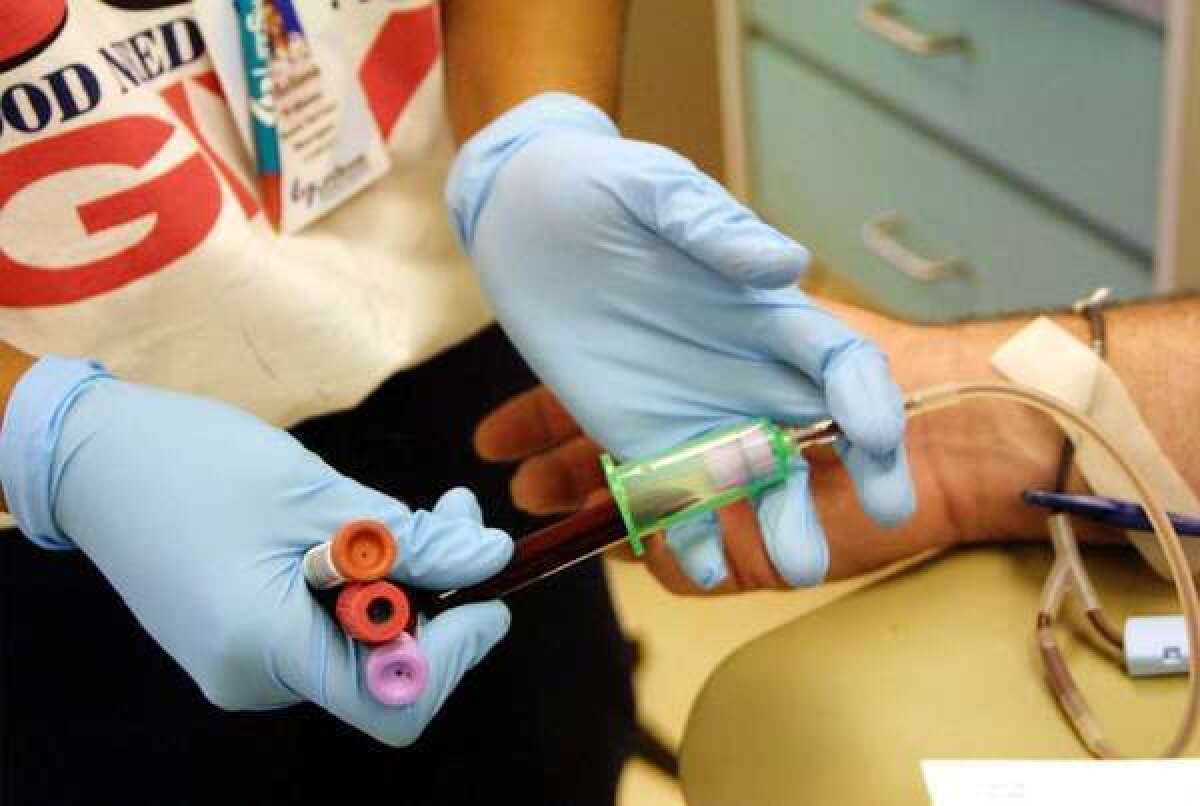Study: Docs give the OK to eat before a lipid test

- Share via
Forget those long, grueling fasts you dreaded before getting blood drawn for a lipid test: A new study finds that it’s probably OK to eat beforehand.
Doctors assessing their patients’ cardiovascular risk often send patients to get their lipid levels checked, with the caveat that they must fast for nine to 12 hours – which would mean they’d have to come back at a later time and possibly skip mealtimes to boot. This often leaves physicians in a bind because it’s very possible the patients won’t return. Would it be better to send them to the lab right now, even if the results might be slightly inaccurate?
Previous research has shown that, in some cases, there may not be much difference whether a person eats or not – and, in fact, that certain markers in the blood might better predict cardiac risk when a person isn’t fasting for an extended period. Now, a large-scale study in the Archives of Internal Medicine has backed that idea up.
The researchers took advantage of a 2011 policy change affecting a lab in Calgary, Canada, which allowed it to test fasting lipid levels no matter how long the fast – so long as the lab marked down the time since the patient’s last meal, down to hourly accuracy.
After analyzing the records of 209,180 patients and controlling for age and separating by sex, the researchers found that, in general, the average total cholesterol and HDL (or “good”) cholesterol levels varied by less than 2%, and the average LDL (or “bad”) cholesterol varied by less than 10%. The triglyceride levels varied by up to 20%.
The study didn’t compare the fasting and non-fasting lipid levels of individual patients, which would be a good point of further study, the researchers said. But an editorial and a commentary in the same issue agreed that, on the whole, in most cases, the benefits of non-fasting lipid tests generally outweighed the drawbacks.
Follow me on Twitter @aminawrite.




